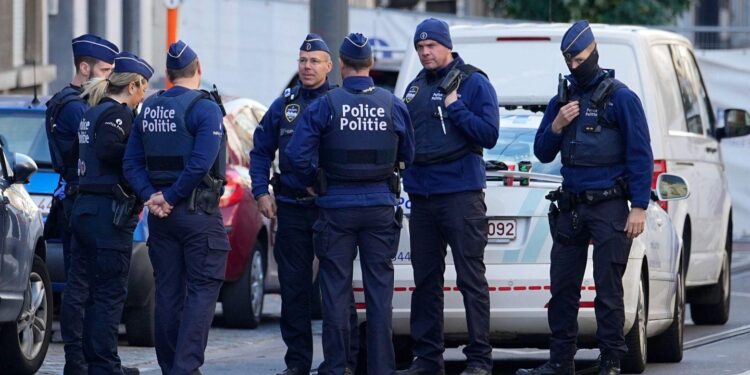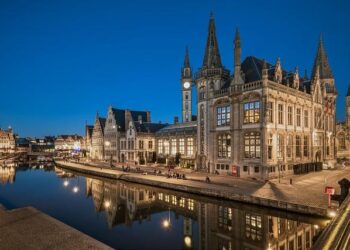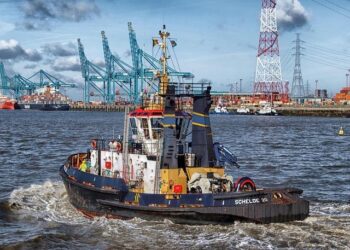Belgian authorities have ended a 29-hour Greenpeace protest at a key liquefied natural gas (LNG) terminal, restoring access after demonstrators blocked operations to highlight environmental concerns. The maritime facility, vital for Belgium’s energy imports, was temporarily disrupted as activists sought to draw attention to the climate impact of fossil fuels. Police intervention successfully cleared the blockade, allowing normal terminal functions to resume, underscoring the ongoing tensions between energy security and environmental advocacy.
Belgium Police Resolve Greenpeace Protest at LNG Terminal Restoring Port Operations
After a prolonged 29-hour standoff, Belgian police successfully dismantled a Greenpeace protest that had paralyzed operations at a major LNG terminal in the Port of Zeebrugge. The activists had blockaded key access points, demanding urgent action on climate issues and the reduction of fossil fuel dependency. Authorities moved in early Tuesday morning, employing specialized units to ensure the safe removal of demonstrators without escalating tensions. Normal port activities, critical for both national energy supply and international maritime traffic, swiftly resumed following the clearance.
The disruption impacted several stakeholders, including:
- Shipping companies faced delays, with schedule adjustments already underway.
- Terminal operators worked to restore full functionality and secure infrastructure.
- Local businesses expressed relief at the end of the blockade affecting cargo flow.
Authorities reaffirmed their commitment to balancing security and the right to peaceful protest, while emphasizing the importance of uninterrupted port operations for Belgium’s economy. A review meeting is planned to discuss preventive measures against similar incidents in the future.
| Event | Duration | Impact |
|---|---|---|
| Greenpeace Protest Start | April 24, 14:00 | Terminal blockaded |
| Police Intervention | April 25, 19:00 | Safe removal of activists |
| Port Reopened | April 25, 20:30 | Operations resumed |
Impact of the Blockage on Belgium’s Energy Supply and Maritime Commerce
The blockade at Belgium’s key LNG terminal, orchestrated by Greenpeace activists, caused immediate ripple effects on the nation’s energy grid. With a significant portion of natural gas imports delayed, grid operators were forced to tap into emergency reserves and increase reliance on alternative, less sustainable energy sources. This sudden shift not only placed pressure on Belgium’s energy security but also threatened compliance with EU climate targets for the quarter. Households and industries experienced heightened concerns over energy supply stability, especially as colder weather increased demand.
Maritime commerce through the Port of Zeebrugge, pivotal for Belgium’s international trade, also faced significant disturbances. Cargo vessels and LNG carriers were compelled to reroute or endure prolonged waiting times, leading to scheduling backlogs and financial strain on shipping companies. Key impacts included:
- Delay in LNG offloading by over 24 hours, affecting downstream supply chains.
- Congestion of port traffic, disrupting the flow of goods ranging from agricultural exports to manufacturing components.
- Increased operational costs due to extended wait times and fuel consumption for idling vessels.
| Sector | Impact | Duration | ||||||||||
|---|---|---|---|---|---|---|---|---|---|---|---|---|
| Energy Supply | Emergency reserve activation, increased fossil fuel use | 29 hours | ||||||||||
| Maritime Commerce | Shipping delays, congestion in port | Recommendations for Enhancing Security Measures Against Environmental Activism Disruptions To effectively fortify critical infrastructure against disruptions by environmental activists, authorities should adopt a multi-layered strategy combining advanced technology with community engagement. Deploying real-time surveillance systems, including drones and thermal imaging, can provide early detection of unauthorized gatherings or blockades. Integration of AI-powered monitoring tools enables law enforcement to quickly analyze activities and coordinate timely responses, reducing the window for disruption. Additionally, enhancing physical security with reinforced barriers and controlled access points at vulnerable sites minimizes the risk of successful protests escalating into operational shutdowns. Beyond technological upgrades, fostering open communication channels between authorities, industry stakeholders, and environmental groups can preclude confrontations. Establishing designated dialogue forums encourages transparency, allowing activists to express concerns through legal avenues, potentially mitigating the necessity for direct action. Moreover, training law enforcement personnel in conflict de-escalation techniques and environmental protest awareness ensures responses remain proportionate and effective. These measures collectively create a resilient ecosystem capable of balancing security imperatives with respect for civil dialogue.
Final ThoughtsBelgium’s law enforcement successfully ended the Greenpeace blockade of the LNG terminal after nearly 29 hours, restoring access and resuming normal operations. The incident highlights ongoing tensions between environmental activists and energy infrastructure stakeholders as the country navigates its energy transition. Authorities have affirmed their commitment to maintaining security while balancing the right to protest, signaling that similar disruptions will be met with decisive action in the future. ADVERTISEMENT |
















